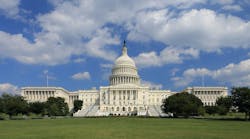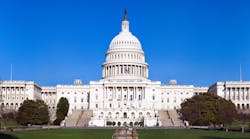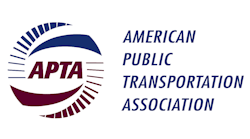Surface transportation legislation extended one-year with passage of continuing resolution
The Senate passed the Continuing Appropriations Act, 2021 and Other Extensions Act Sept. 30 and President Donald Trump signed the Act into law Oct. 1 with little time to spare to avoid a government shutdown.
The bill keeps the federal government funded at current levels through Dec. 11, 2020, and it also provides a one-year extension to surface transportation programs that were part of the Fixing America’s Surface Transportation (FAST) Act that was set to expire Sept. 30.
The bill authorizes at least $12.6 billion for public transit investment, according to analysis by the American Public Transportation Association (APTA). The association highlighted additional transit priorities including:
- The authorization of public transit funding for FY 2021 at amounts equal to the FY 2020 authorization as provided by the FAST Act (P.L. 114-94) and distributes the funds in the same manner as the prior year;
- The prevention of a $6 billion (or 60 percent) across-the-board cut of FY 2021 transit formula funds to each public transit agency by prohibiting application of the Rostenkowski Test;
- A deposit of $3.2 billion in the Mass Transit Account (MTA) of the Highway Trust Fund to ensure that the MTA will not run out of funds and FTA will be able to process grants in the upcoming fiscal year; and
- The extension of the authorization for transit-oriented development (TOD) projects for Railroad Rehabilitation and Improvement Financing (RRIF) loans and loan guarantees (which expired Sept. 30, 2020) to Sept. 30, 2021.
The legislation passed the House on Sept. 22, but received initial push back from Senate Majority Leader Mitch McConnell who said the bill did not do enough for farmers. These issues were remedied with hours to spare before the government would have ground to a halt.
While this is the first extension of the FAST Act, these short-term extensions provide Congress time to work out legislation for the longer term. The surface transportation legislation prior to the FAST Act was extended twice while the one prior to that was extended 10 times after its initial expiration. However, as APTA notes, this is the first time in 30 years a one-year extension has been authorized after the lapse of a multi-year authorization act.
APTA President and CEO Paul Skoutelas expressed gratitude for the one-year extension, but provided a reminder that the U.S. transit industry is in need of additional certainty as it continues to grapple with increased costs associated with pandemic best practices regarding cleaning and safety measures and revenue losses.
“APTA, on behalf of the entire public transportation industry, applauds Congressional leaders and the Trump Administration for reaching a bipartisan agreement,” said Skoutelas. “H.R. 8337 provides public transit agencies with much-needed certainty regarding public transit funding in FY 2021…While passage of this bill is vital to the industry, Congress still needs to address the urgent and dire situation faced by public transportation systems across the nation. As Congress negotiates the newly proposed The Heroes Act, APTA implores both chambers of Congress and the Administration to provide at least $32 billion in critical federal support to enable the public transit industry to survive this unprecedented pandemic.”

Mischa Wanek-Libman | Group Editorial Director
Mischa Wanek-Libman is director of communications with Transdev North America. She has more than 20 years of experience working in the transportation industry covering construction projects, engineering challenges, transit and rail operations and best practices.
Wanek-Libman has held top editorial positions at freight rail and public transportation business-to-business publications including as editor-in-chief and editorial director of Mass Transit from 2018-2024. She has been recognized for editorial excellence through her individual work, as well as for collaborative content.
She is an active member of the American Public Transportation Association's Marketing and Communications Committee and served 14 years as a Board Observer on the National Railroad Construction and Maintenance Association (NRC) Board of Directors.
She is a graduate of Drake University in Des Moines, Iowa, where she earned a Bachelor of Arts degree in Journalism and Mass Communication.





